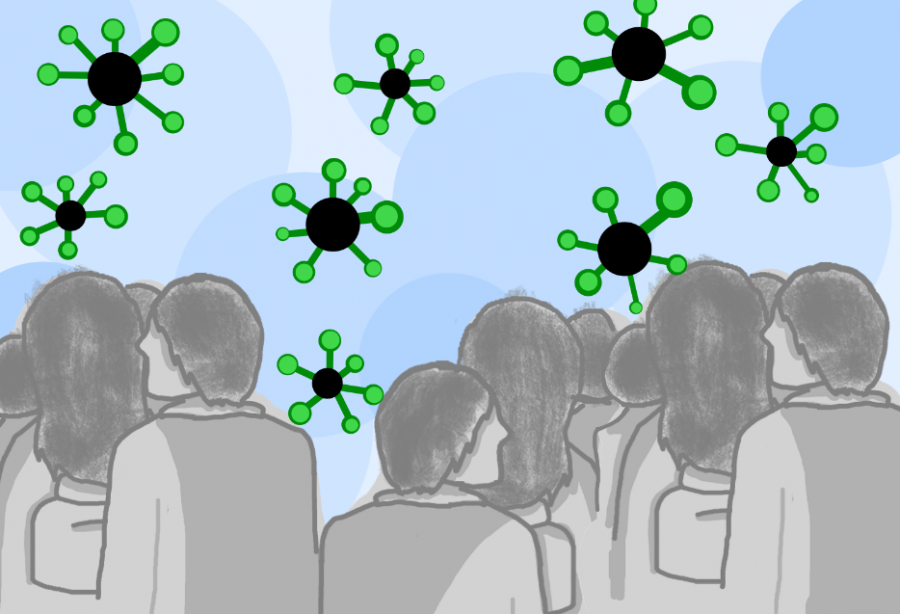OPINION: WSU should prioritize student safety this fall
Despite uncertainty, administration should keep safety as highest concern
Students and staff alike need to put their safety ahead of everything else when making decisions about the fall semester.
June 3, 2020
There has been a lot of uncertainty recently about whether or not WSU will open up again in the fall. President Kirk Schulz has already made it clear that he wishes to move back to face-to-face instruction and many students likely share the same sentiment.
Learning through online classes is just not the same as learning face-to-face, and we have already seen a myriad of issues with the online format. However, with the pandemic still a looming threat, WSU should exercise the utmost caution in making this decision and avoid acting hastily, keeping students’ safety in mind.
Universities nationwide have been facing this same dilemma and some have already made their decisions. The California State University system, for example, recently announced that courses will primarily be taught via remote learning through the fall. Other schools, such as the University of Colorado, have taken steps to decrease the population density on campus and limit the virus’ spread, such as ending the semester after Thanksgiving and giving finals remotely. These schools have made hard decisions, but it is clear that they were made with student safety as a top priority.
We can only hope WSU does the same.
At WSU, feelings are strong and mixed regarding fall classes. ASWSU President Curtis Cohen said that WSU should reopen.
“Face-to-face experience in any form is beneficial to a student’s overall development and well-being, and can be achievable in a healthy way with strict social distancing guidelines,” Cohen said.
Christian Shaffer, president of the Residence Hall Association, believes the university should not reopen at all, citing issues with maintaining social distancing practices.
“The feasibility of keeping social distancing requirements in effect is almost impossible through the system,” Shaffer said. “People come to WSU for the community as well as the education, so taking part of this out of the equation makes the appeal to the general student very low.”
Perhaps the worst-case scenario is if the university opens too hastily without enough consideration, resulting in a second wave of the virus and an outbreak in Pullman. This would bring us back to where we were this spring and probably result in remote learning again anyway.
It is also important to consider if students would even want to come back for the fall. If classes are online again come August, many students might not even return to campus. Even if classes are held face-to-face, some students might choose to stay home anyways out of caution.
Cohen said he thinks students will want to return to campus if reopened, but online classes could result in decreased enrollment.
“If the university chooses to continue distance learning, I would anticipate a large portion of students to either take a gap year or pause their college experience until in-person classes resume,” he said.
Shaffer also said he thinks there will be fewer students on campus in the fall.
“Incoming freshman are making tough decisions right now based on the global situation, so I think as a whole WSU will see less newcomers and returners,” he said.
While there are many scenarios and viewpoints to consider in this matter, both Cohen and Shaffer agreed that WSU should act in students’ best interests and keep the university population safe.
“The university should err on the side of extra caution in order to ensure that WSU and Pullman remain healthy,” Cohen said.
He also mentioned the importance of providing students with gear they would need to keep them safe, including masks, sanitizing equipment and contact tracing measures.
Similarly, Shaffer thinks safety is paramount.
“I think the most important factor in this whole situation is student and staff safety in general,” Shaffer said. “I think in the situation of a global pandemic, you cannot approach this situation with the intent of benefiting the majority at the expense of the minority.”
The pandemic has affected just about every part of WSU. It has been a challenging time for all. University staff has already done a commendable job keeping students safe while providing the best educational opportunities possible. With so much uncertainty right now, it’s anyone’s guess what the future holds. It’s also probably safe to say that the fall semester won’t be “normal.” Whatever happens though, I hope WSU continues to exercise caution and make decisions with student health and safety as a top priority.











Elizabeth Siler • Jun 4, 2020 at 8:46 am
Thank you for your editorial. We also need Dr. Schulz to consider the safety of the faculty, the staff, the custodians, etc. I am concerned about his stated preference to get football back! The last thing we need (meaning all of us, including those of us who have nothing to do with WSU) is large crowds of people coming here every other weekend. Perhaps the solution is taped games — or better yet, maybe NO games until the situation is safer. Again, I thank you for writing.